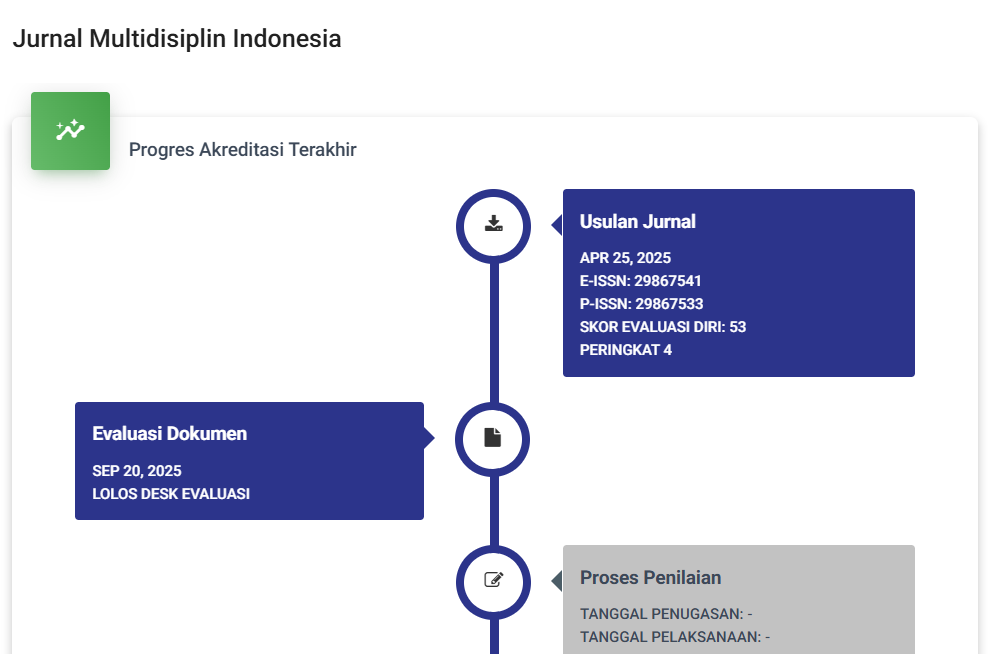Talent Management In Enhancing Corporate Competitiveness In The Era Of Industry 4.0: A Case Study Of Pt Nestlé Indonesia
DOI:
https://doi.org/10.62007/joumi.v3i2.504Keywords:
Talent Management, Corporate Competitiveness, Industry 4.0Abstract
This study aims to examine the role of talent management in enhancing corporate competitiveness in the era of Industry 4.0, using PT Nestlé Indonesia as a case study. A qualitative method was employed, utilizing a library research approach that analyzes various literature related to talent management and corporate competitiveness. Data were collected through a literature review involving books, journals, and relevant articles discussing the challenges and strategies of talent management in the context of technological change and digitalization. The findings indicate that effective talent management such as digital skills development, innovation in recruitment processes, and clear career planning plays a crucial role in improving corporate competitiveness. PT Nestlé Indonesia has implemented various talent management strategies to prepare its employees for the Industry 4.0 transformation. This study concludes that adaptive and future-oriented talent management is key to maintaining competitive advantage in the digital era.
References
A. Alamsyah, N. Hakim, and R. Hendayani, “Blockchain-Based Traceability System to Support the Indonesian Halal Supply Chain Ecosystem,” Economies, vol. 10, no. 6, pp. 19–41, 2022, doi: 10.3390/economies10060134.
A. Kaleka and N. A. Morgan, “Which competitive advantage (s)? Competitive advantage-market performance relationships in international markets,” J. Int. Mark., vol. 25, no. 4, pp. 25–49, 2017, doi: 10.1509/jim.16.0058.
Agit and S. Muharram, “Artificial Intelligence Capability in Education to Enhance Human Resources Quality from Economic Perspective,” pp. 738–746, 2024.
B. Syaiful, Metode Penelitian Bisnis - Lengkap Dengan Teknik Pengolahan Data SPSS, 1st ed. Yogyakarta: ANDI Press Publihser, 2018.
Boydell, “Implication of Learning in Organizations,” J. Eur. Ind. Train., vol. 19, no. 03, pp. 36–46, 1996.
D. P. Faeni, “Green practices and employees’ performance: The mediating roles of green human resources management policies and knowledge development,” J. Infrastructure, Policy Dev., vol. 8, no. 8, p. 4924, 2024, doi: 10.24294/jipd.v8i8.4924.
Harsch, “Dynamic talent management capabilities and organizational agility—A qualitative exploration. Human Resource Management,” Elshiver J. Int., vol. 03, pp. 25–33, 2020.
Himam, “Talent management dalam Perspektif Organizational Change and Development. Review,” J. Adm. Publik, vol. 09, pp. 113–120, 2016.
Kromer, Leveling the Playing Field: Law Enforcement and the Challenges of Mobile Digital Forensics, 1st ed. Kopenhagen: Doctoral Dissertation, Utica College, 2018.
L. Y. Liu, “The Influence of Digital Marketing The Country of Origin Image, Service Quality and Product Involvement on Consumer Purchase Decisions : An Empirical Study of Insurance and Catering Services in Taiwan,” J. Consum. Mark., vol. 23, pp. 248–265, 2018.
LeAnn Brown, Babu George, Candace Mehaffey-Kultgen. “The development of a competencymodeland its implementation in a power utility cooperative: an action researchstudy,” Ind. Commer. Train., vol. 17, pp. 555–665, 2021, doi: https://doi.org/10.1108/ict-11-2017-0087.
M. Hernandez-de-Menendez, R. Morales-Menendez, C. A. Escobar, and M. McGovern, “Competencies for Industry 4.0,” Int. J. Interact. Des. Manuf., vol. 14, no. 4, pp. 1511–1524, 2020, doi: 10.1007/s12008-020-00716-2.
N. Mubarak, J. Khan, M. Ali, and O. Pesämaa, “Roadmap to Achieve Green Project Performance: The Role of Knowledge Co-creation,” J. Knowl. Econ., no. 0123456789, 2024, doi: 10.1007/s13132-024-01779-2.
Nisa, “Pengaruh Manajemen Talenta Dan Manajemen Pengetahuan Terhadap Kinerja Karyawan (Studi pada Karyawan PT. PLN (Persero) Distribusi Jawa Timur, Surabaya),” J. Adm. Bisnis, vol. 9, pp. 45–66, 2018.
R. J. McLeod, Sistem Informasi Manajemen, 1st ed. Jakarta: Prenhallindo, 2001.
R. Primadasa, E. Kusrini, A. Mansur, and I. Masudin, “Integrating DEMATEL-ISM-MICMAC: an interconnected model of halal-sustainable supply chain management (HSSCM) indicatorsfor SMEs,” J. Islam. Mark., vol. 12, pp. 112–134, 2025, doi: 10.1108/JIMA-07-2024-0303.
R. R. Tirno, N. Islam, and K. Happy, “Green HRM and ecofriendly behavior of employees: Relevance of proecological climate and environmental knowledge,” Heliyon, vol. 9, no. 4, p. e14632, 2023, doi: 10.1016/j.heliyon.2023.e14632.
S. A. Nurcahyo, A. Ali, and T. H. Widagdo, “Strategi Manajemen Talenta Dalam Pengembangan Karir Dengan Praktek Capacity Building Pada Lingkup Organisasi Pemerintah Daerah Kabupaten Semarang,” J. Value Added UNIMUS, vol. 20, no. 2, pp. 13–27, 2024.
S. A. Nurcahyo, R. Jannah, and M. Anis, “Maqasid Syariah Management in Realizing Sustainable Development Goals : Perspective of the Halal Tourism Industry,” J. Digit. Mark. Halal Ind., vol. 4810, pp. 175–192, 2024.
S. A. Nurcahyo, T. H. Widagdo, and A. Ali, “Talent Management Strategy in Career Development with Capacity Building Practices within the Local Government Organization of Semarang Regency,” Proc. 4th Int. Conf. Law, Soc. Sci. Econ. Educ. ICLSSEE 2024, 25 May 2024, Jakarta, Indones., vol. 02, pp. 19–34, 2024, doi: 10.4108/eai.25-5-2024.2348957.
S. Alma, S. Nur, A. Zulkiffli, N. Hazimah, and N. Mat, “The Link between Green Human Resource Management and Job Performance: Investigating the Mediating Role of Organizational Culture,” J. Syst. Manag. Sci., vol. 14, no. 12, pp. 114–128, 2024, doi: 10.33168/jsms.2024.1207.
Schulers, “Global Talent Management and Golbal Talent Challenges: Global Talent Strategic Opportunities for HRM,” J. World Bus., vol. 01, pp. 88–92, 2011.
Sugiyono, “Metode Penelitian Pendidikan Pendekatan Kuantitaif, Kualitatif, dan R&D. Bandung CV alfabeta,” Metod. Penelit. Pendidik. Pendekatan Kuantitaif, Kualitatif, dan R&D, pp. 283–393, 2013, doi: 10.1007/s13398-014-0173-7.2.
T. Wikaningrum and L. Kartikasari, “Integration of talent management and knowledge management for enhancing innovation performance,” J. Ekon. dan Bisnis, vol. 26, no. Oktober, pp. 331–348, 2023.
Thomas Pogge, World Poverty and Human Rights: Cosmopolitan Responsibilities and Reforms, 2nd ed. New Heaven: Polity Press, 2010.
Yunita, P. &. (2024). Pemilihan Umum Sebagai Bentuk Perwujudan Demokrasi di Indonesia. Journal of Practice Learning and Educational Development, 4(2), 137-142.
Downloads
Published
How to Cite
Issue
Section
License
Copyright (c) 2025 Armando Monteiro, Darwati Susilastuti

This work is licensed under a Creative Commons Attribution-ShareAlike 4.0 International License.







